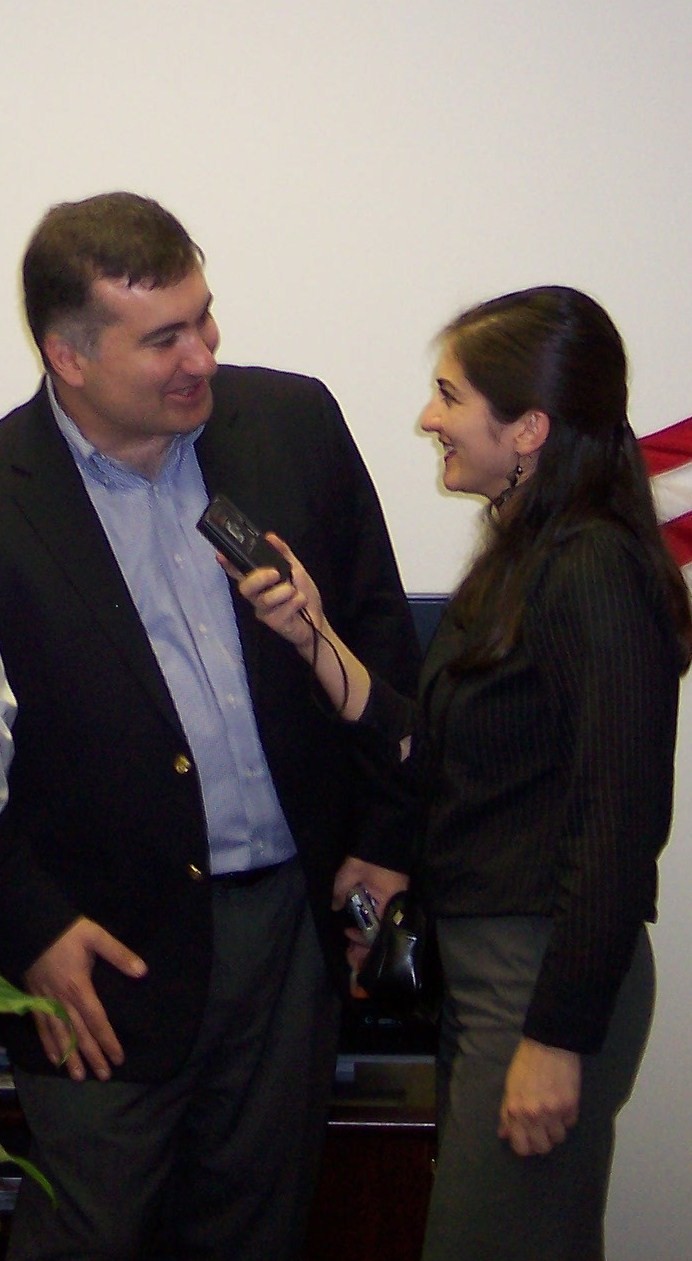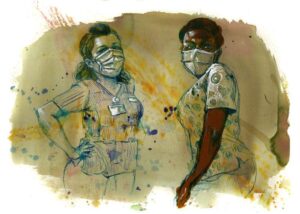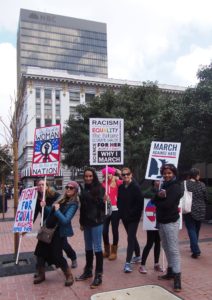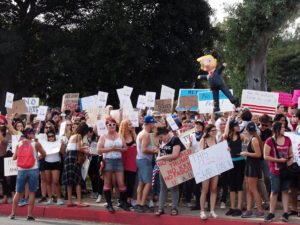Talking Nagorna-Karabakh issue

The foreign ministers of Azerbaijan and Armenia came together in the Russian capital of Moscow and gave a joint statement on the Nagorno-Karabakh issue. After this meeting I had a chance to talk with Azerbaijan Consul General of Los Angeles, Elin Suleymanov…
Could you tell us your opinion about this meeting please?
Azerbaijan has been involved in Minsk Group negotiations since 1992 in spite of Armenia’s illegal occupation of the internationally-recognized Azerbaijani territories and displacement of almost 1 million Azerbaijani civilians. This shows Azerbaijan’s commitment to seeking a peaceful solution to the Armenia-Azerbaijan conflict. Therefore, the Moscow meeting of the foreign ministers is a welcome step. In fact, the Azerbaijani side welcomes all steps towards finding a resolution and both President Aliyev and Foreign Minister Mammadyarov have been meeting regularly with their Armenian counterparts.
At the same time, the peace talks lasting for 16 years have not produced any tangible results on the ground. Without real progress, it is too early to be optimistic about the negotiation process.
What is the reason to have this meeting behind closed doors?
As the talks have traditionally been confidential in order to afford a frank discussion of sensitive issues, I am not surprised this meeting was a closed one as well.
In a statement after the meeting, the Azerbaijani foreign minister Elmar Mammadyarov said that “If we feel that we’ve found a middle ground, then nothing will be impossible.” What would be the middle ground?
I believe such a common middle ground can be found in recognizing our common future as an integral region, something that has been overshadowed by ethnicity-driven expansionism in Armenia. Of course, this means respecting one’s neighbors and upholding fundamentals of international law. Most important, however, is departing from simplistic, past-oriented ideological paradigms towards cooperative regional arrangements.
They say, Azerbaijan sees the return of Nagorno-Karabakh as primary importance, and wants the separation of Armenian volunteers from Karabakh and the return of 1 million Azeri refugees to the region before beginning talks on Karabakh’s status. Is that correct?
Of course, the return of all occupied Azerbaijani territories, including Nagorno Karabakh, and return of the displaced communities to their homes are among the first priorities. If we look at the peaceful settlement as a process, it can be roughly divided in two phases: return of the occupied territories, repatriation of the internally displaced persons and withdrawal of Armenian troops- please note that we are not speaking about volunteers but rather about the regular armed forces of Armenia. At the same time, the same first phase includes opening of communications between Armenia and Azerbaijan, guarantees of security for both Armenian and Azerbaijani populations and introduction of international peace-keepers. The second phase would include discussion of Nagorno Karabakh’s status within the framework of territorial integrity of Azerbaijan. Overall, this seems to be a practical and pragmatic approach benefiting both sides and the region as a whole. The sooner Armenia recognizes’ this, the better it is for the country and its people.
Do you think Azerbaijan and Armenia will find a path to an agreement?
The fact that the negotiations have lasted for so long speaks about the complexity of finding a solution. Still, we can only fully realize the potential of our region if an agreement is found. Therefore, I am hopeful.
Could you talk a little bit about what is the mood right now in Azerbaijan after all this meetings?
As mentioned earlier, this is not the first meeting of our foreign ministers. So, I don’t believe that this meeting has a significant impact on the mood in Azerbaijan. In general, the public in Azerbaijan is somewhat frustrated by the lack of real progress in negotiations. There is a certain “peace talks fatigue.”
Is there any new attempts for diplomatic relations between Armenia and Azerbaijan?
The contacts with the Armenian side take place within the negotiation context. Of course, until at least some movement occurs in the peace talks, it is premature to expect other bilateral diplomatic relations.
What about Naxcivan?
Naxcivan has been under Armenian blockade since the beginning of the conflict. As a result, development in this region of Azerbaijan has slowed development. Thankfully, the situation in Naxcivan today, both in economic and political sense, has been improving in recent years. I’d like to thank Turkey for its strong support to the people of Naxcivan and for helping the region overcome the challenges of being under a blockade.
Is there anything else you would like to add to conclude this interview?
Azerbaijan is located in one of the most strategically important junctures of the modern world. Together with Georgia and Turkey, Azerbaijan is working to develop regional project, which have a positive impact in Eurasia and globally. For the United States, Azerbaijan and its partners stand as strategic and reliable allies.
I’d like to reiterate my gratitude to the Turkish people for their support of Azerbaijan and Georgia. Turkey has played an important role in ensuring the success of our region. This contribution is very much appreciated.
Turkey has been demonstrating strong solidarity with Azerbaijan rejecting Armenia’s policy of ethnic cleansing and occupation while also working towards helping both sides to find a mutually acceptable solution. Turkey’s position towards Armenia-Azerbaijan conflict is the most principled and most consistent with the international law. Perhaps, such a principled approach from Turkey can help Armenia and Azerbaijan to arrive at a settlement.
On November 14, 2005, the President of the Republic of Azerbaijan Ilham Aliyev appointed Elin Suleymanov as Azerbaijan’s first Consul General to Los Angeles, California with personal rank of Envoy Extraordinary and Plenipotentiary. Prior to that he served as Senior Counselor at the Foreign Relations Department, Office of the President in Baku, Azerbaijan and as Press Officer of the Azerbaijani Embassy in Washington, DC. Before joining diplomatic service, Mr. Suleymanov worked with United Nations High Commissioner for Refugees in Azerbaijan and with the Open Media Research Institute in Prague, Czech Republic. A graduate of the Fletcher School of Law and Diplomacy in Medford, Massachusetts, Mr. Suleymanov also holds graduate degrees from the Political Geography department of the Moscow State University, Russia, and from the University of Toledo, Ohio. Mr. Suleymanov speaks Azerbaijani, English, Russian and Czech languages.
(Turkish Journal)



